Beautiful and Gleaming "Carabus Hispanus" 🐛 Founded in Ardèche, France [EN - FR]
Hi dear Hivers ! How are you today ?
Back few days in Ardèche, we had the opportunity to observe this fascinating iridescent insect. As the title of the article indicates, it is a Carabus Hispanus, a Spanish beetle...
We were following the course of a stream between two basalt ravines, formed by an eruption more than 500 million years ago... It makes a lot of thinking about the place of the Man ^^

SOURCE
Above, I let you admire the genius of taxonomic and scientific (over)classification of which our species is capable... As far as the scientific field is concerned, I think I have nothing to say... It all depends on the final use of the discoveries, but as far as life as such is concerned, I still have big doubts about the capacity of rational intelligence to make people truly happy...!
I even believe that it is this voluntary and/or induced separation which makes beings so empty of souls nowadays... And this, especially in the West where all spiritual aspects have been beaten up for decades... Please note that I am not talking about religions 😉
But let's get back to our fascinating friend...
Contrary to its name, the Spanish beetle (Carabus hispanus), lives only in the south of France, between the Pyrenees and up to the Massif Central, in beech, oak and chestnut forests. It feeds mainly on worms, slugs, and snails.
It is one of the largest and most gleaming French carabids. Its carapace presents a variation of colors, copperish, greenish, bluish, according to the angle of the lighting.
To finish, here are two pictures of the site where we were, a real haven of peace, calm and without any trace of Man where we could enjoy this beautiful afternoon, swimming, reading, writing and discussions...
I hope this article has interested you, if so, don't hesitate to share your impressions and suggestions in the comments :)
See you soon for new colorful and instructive adventures and be well until then !
<3
anttn
Salut chers Hivers ! Comment allez vous aujourd'hui ?
De retour quelques jours en Ardèche, nous avons eu l'occasion d'observer ce fascinant insecte iridescent. Comme le titre de l'article l'indique, il s'agit donc d'un Carabus Hispanus, un scarabée espagnol...
Nous suivions le cours d'un ruisseau entre deux ravins de basalte, formés par une éruption d'il y a plus de 500 millions d'années... Ça fait réfléchir sur la place de l'Homme ^^

SOURCE
Ci-dessus, je vous laisse justement admirer le génie de (sur)classification taxinomique et scientifique dont notre espèce est capable... Pour ce qui est du domaine scientifique je crois que je n'ai rien a redire... Tout dépend de l'usage final des découvertes, mais pour ce qu'il en ai de la vie en tant que telle, j'ai quand même de gros doute sur la capacité de l'intelligence rationnelle quant au fait de rendre véritablement heureux...!
Je crois même que c'est cette séparation volontaire et/ou induite qui rend les êtres si vides d'âmes de nos jours... Et ce, particulièrement en Occident où l'on bat en brèche tous les aspects spirituels depuis des décennies... Notez bien que je ne parle pas de religions 😉
Mais revenons en à notre fascinant ami...
Contrairement à son nom, le Carabe espagnol (Carabus hispanus), ne vit que dans le sud de la France, entre les Pyrénées et jusqu’au Massif Central, dans les forêts de hêtres, de chênes et de châtaigniers. Il se nourrit principalement de vers, de limaces, et d’escargots.
C’est l’un des plus grands et des plus rutilants carabes français. Sa carapace présente une variation des couleurs, cuivreux, verdâtre, bleuâtre, suivant l’angle de l'éclairage.
Pour terminer, voilà deux images du site où nous nous trouvions, un vrai havre de paix, calme et sans trace de l'Homme ou nous avons pu profiter de ce bel après-midi, en baignade, lecture, écriture et discussions...
J'espère que cet article vous aura intéressé, si c'est le cas, n'hésitez pas à me faire part de vos impressions et suggestions dans les commentaires :)
À très bientôt pour de nouvelles aventures bigarrées et instructives et portez-vous à merveille d'ici là !
<3
anttn
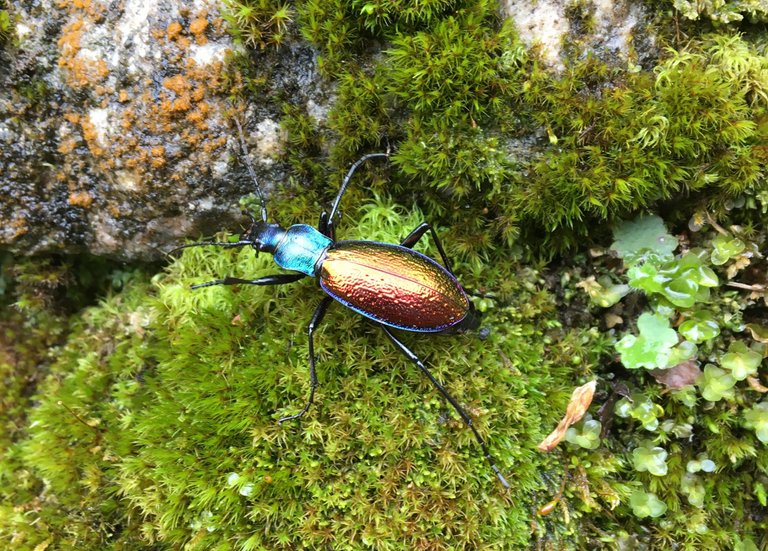
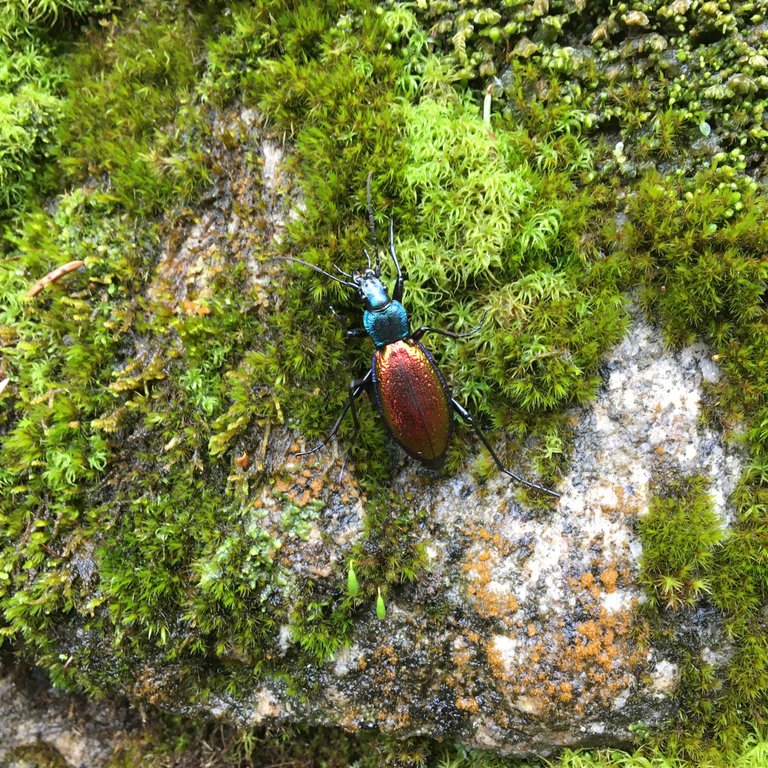
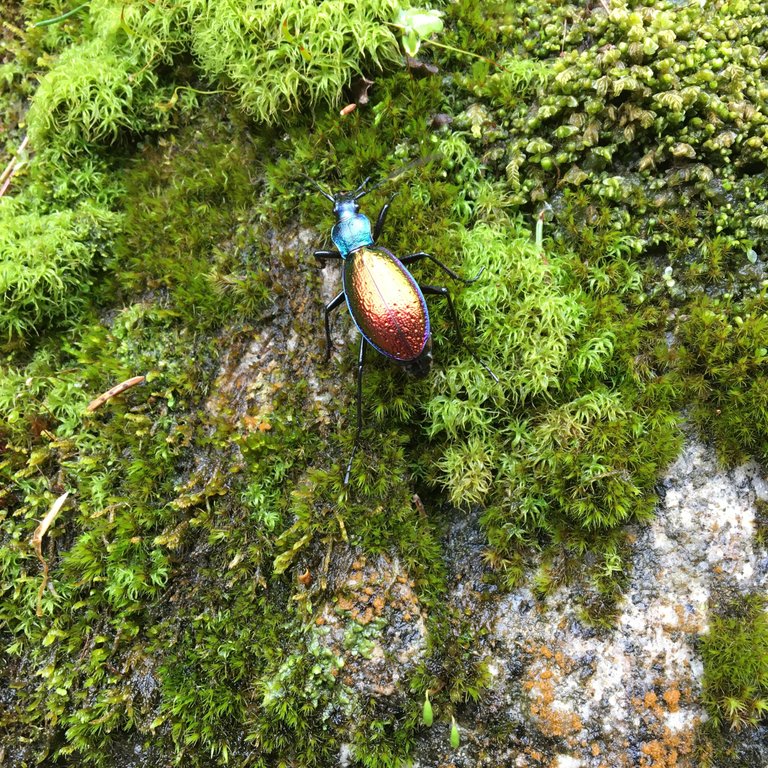
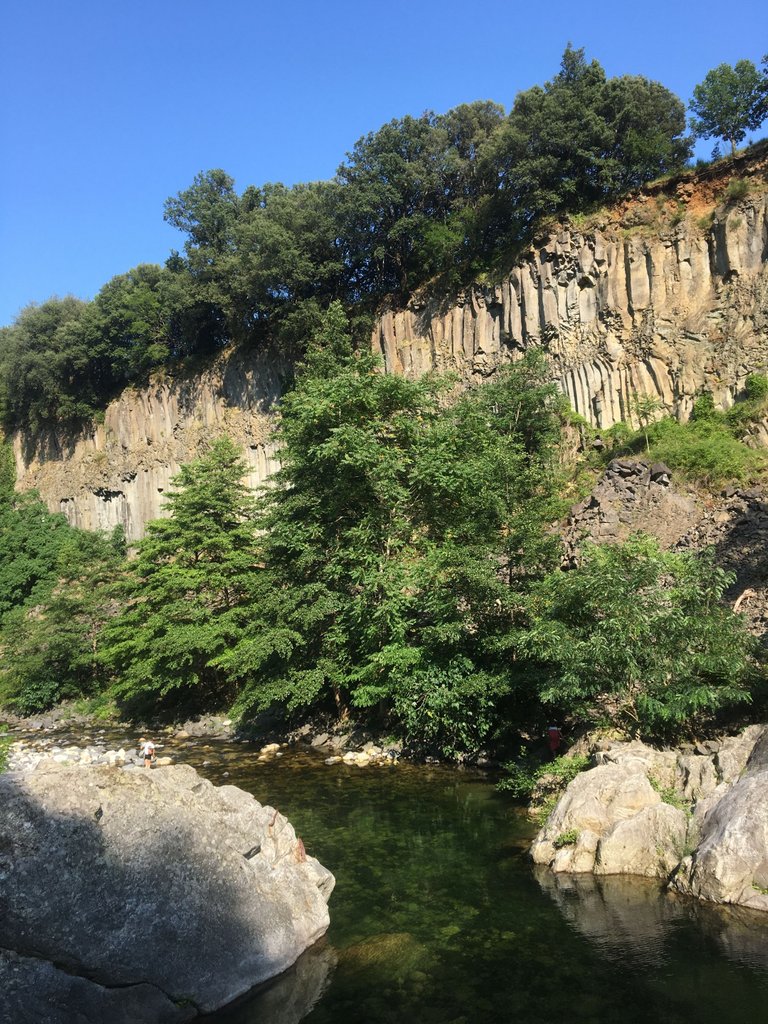
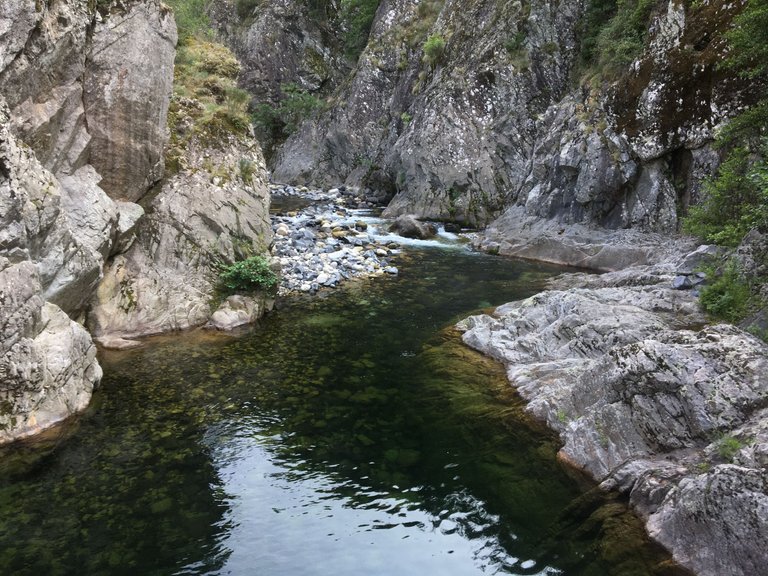
https://twitter.com/flows1984/status/1539338238510387201
The rewards earned on this comment will go directly to the people( @anttn ) sharing the post on Twitter as long as they are registered with @poshtoken. Sign up at https://hiveposh.com.
Beautiful capture of this beetle, I like the iridescent bright colours… 😎 pretty cool.
Such a beautiful surroundings too.
yeah, all that afternoon was blessed !... as every moment I’m sure when we’re fully aware, but this moment was maybe easier to spot on 🙃
Good to hear @anttn 😁
Yes, these moments are easier to spot with those special colours 😎
Have a wonderful day today 👋🏻☀️
that's for sure :)
it was quite a good one, thanks you <3
... and I hope for you as well !
Wishing you a very nice weekend too !
Thank you so much @anttn 👋🏻😁
Enjoy!
Il a des couleurs incroyables !
oui, je dois dire que j’ai un faible pour tout ce qui est iridescent :)
Beautiful nature
This insect is precious! What beautiful colors! Excellent photos.
thanks you 🙃
I really appreciate !
We appreciate your work and your post has been manually curated by zoology team (oscurity,nelinoeva) on behalf of Amazing Nature Community. Keep up the good work!
Hello, it's a great post, nice photos and we loved that you made the taxonomic ID! My question is how did you know it was that particular species? What did you use to identify it? did you know in advance? or did you use any photo to compare? we have new rules that everything that applies a scientific approach must be supported by some scientific support! try in your next post to place the source of identification of the animal! hugs continue with the good content!
2.rule: Always reference the source of pictures and information that you use in texts, even if they are your own .. WE DO NOT TOLERATE PLAGIARISM !
We clearly express that although the content is your property, it must have scientific support! it's easy you just use a web or something where you can support that you identified the species based on: "Xweb".
hi ! thanks you for your support, interest and interrogations :)
In fact, as we were together, it was my brother who found the right species of this insect... I don’t now which taxonomic key he used as he didn’t really told me more than the name !
I also totally understand about the pictures, you can be sure those are mines, but I’ll definitely add a mention on my further articles !
Thanks again for everything 😊